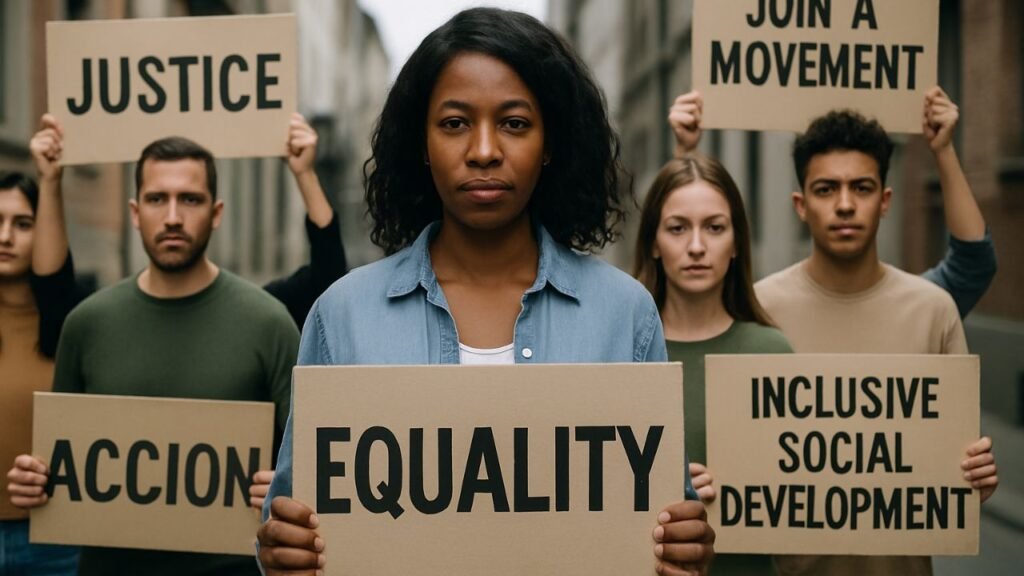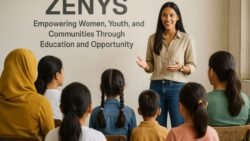Inclusive Social Development – Join a Movement for Equality, Justice, and Inclusive Social Development is more than a slogan—it is a call to action for individuals, communities, and organizations striving to create a fairer society. Across the world, movements advocating for equality and justice have highlighted the importance of addressing systemic inequalities, amplifying marginalized voices, and ensuring access to opportunities for all. South Africa, with its rich history of struggle and resilience, continues to serve as a powerful reminder that inclusive social development is not a choice but a necessity for sustainable growth. By engaging in grassroots initiatives, shaping policies that prioritize fairness, and promoting awareness about human rights, we can collectively build environments where diversity is celebrated, dignity is upheld, and every person is empowered. This movement calls on all stakeholders—youth, educators, policymakers, and citizens—to come together and participate in transformative action that can reshape the narrative of development, ensuring that progress leaves no one behind.

Understanding the Core Principles of Equality and Justice
Equality and justice are deeply interlinked principles that form the foundation of a peaceful and progressive society. Equality demands that every individual, regardless of race, gender, religion, or socio-economic status, is given the same opportunities and treatment, while justice seeks to correct imbalances that history and systemic discrimination have created. In South Africa, where apartheid left deep scars of inequality, social justice initiatives play a critical role in rebuilding communities and restoring dignity. According to the United Nations’ work on sustainable development goals, access to justice and reduced inequality are central to achieving long-term stability. Communities that invest in fair policies, equitable education, and human rights advocacy not only strengthen democracy but also foster inclusive growth. These principles are not abstract ideas; they are practical tools that can dismantle barriers and create pathways to opportunity for historically excluded groups.
The Role of Inclusive Social Development in Nation Building
Inclusive social development goes beyond economic growth; it ensures that every section of society benefits equally from advancements. It emphasizes equity in access to education, healthcare, housing, and employment. In South Africa, organizations and NGOs are leading efforts to bridge gaps by providing support to vulnerable groups, such as women, children, and rural communities. Reports by the World Bank on social development highlight that societies which prioritize inclusivity are more resilient to crises and more likely to achieve sustainable prosperity. Grassroots development programs empower citizens to become active participants in their communities, reducing dependency and enhancing self-reliance. By integrating inclusive practices into governance, business, and civil society, we lay the groundwork for a society where shared prosperity replaces deep divides. Such an approach not only reduces poverty but also strengthens the fabric of democracy by building trust and cooperation among diverse groups.
How Communities Can Drive Change From the Ground Up
Communities are the heart of any movement for equality and justice. When individuals unite around common values and goals, they amplify their collective strength to influence change. Local initiatives such as youth empowerment workshops, women’s cooperatives, and neighborhood advocacy groups create safe spaces for dialogue and action. These efforts build awareness about rights, promote accountability from leadership, and foster solidarity. For example, community-driven campaigns supported by organizations like Amnesty International have shown the power of collective voices in challenging discrimination and pushing for legislative reforms. Grassroots leaders often understand local needs better than external agencies, making their involvement crucial for designing impactful solutions. By participating in these initiatives, ordinary citizens contribute to reshaping systems of inequality and ensuring that their voices are heard in policy-making processes. The strength of community-driven action lies in its ability to inspire national movements and influence broader societal change.
Building a Future Rooted in Human Rights and Dignity
The vision of equality, justice, and inclusive social development ultimately converges on one central value: human dignity. Protecting and promoting human rights ensures that every individual, regardless of background, is treated with respect and fairness. According to the framework provided by the Office of the High Commissioner for Human Rights, societies that safeguard these principles foster stability, innovation, and trust. For South Africa, embracing these values means addressing past injustices while laying a foundation for future generations that is free from discrimination and exclusion. Schools, workplaces, and public institutions must become spaces where diversity is embraced and equal participation is encouraged. By embedding human rights into governance and education, we prepare young people to be custodians of fairness and advocates for justice. Building such a future requires collaboration across all sectors of society, ensuring that development is not only inclusive but also sustainable for generations to come.




